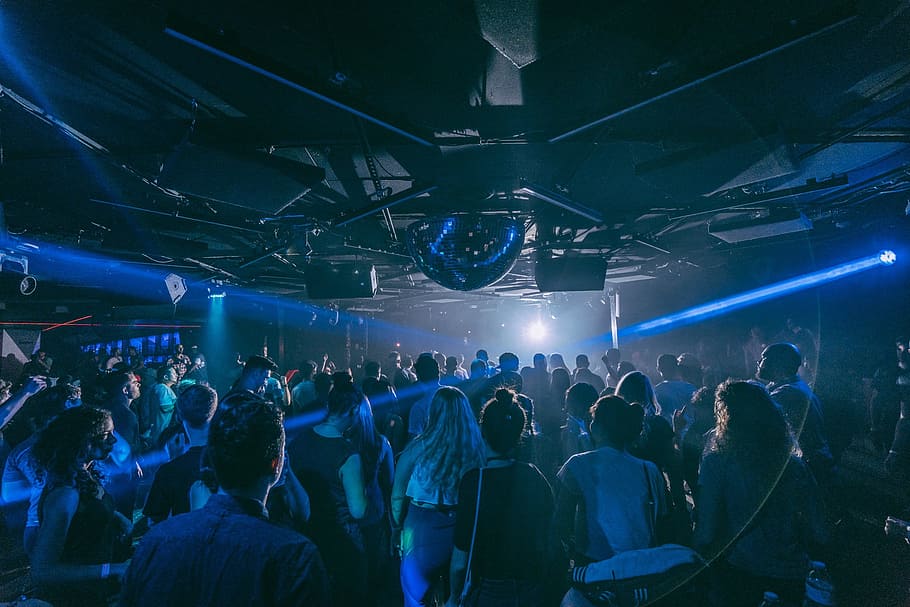Electronic Spotlight: Who Is Taking London’s Slipping Electronic Crown?

Thalia Sampayo looks at the future of electronic nightlife and whether London is losing its spark.
Recently in London’s electronic nightlife news, it’s been one knock after another. With iconic grassroots venues, most notably and recently The Cause and The Drumsheds in Tottenham seeing their last raves, and with the near miss that Printworks had with Southwark Council attempting to bulldoze it into office blocks, the scene in London seems a somewhat depressing one at the minute.
These eclectic spaces have been playing second fiddle to the pressures of gentrification, and it can be seen quite literally. From the bright outdoor section of The Cause in its last summer, shiny high rises served to cast both a literal and metaphorical shadow over the now closed venue. Tal Fineman points out that it’s ironic that nightlife venues are often a ‘key part of the early stages of gentrification in London, helping to ‘put the area on the map’, and then in the later stages, the very venues that made the area attractive are pushed out in favour of sleek new developments. Namely, 2 Ashley Road, ironically heralded as the ‘Heart of Hale’, has apartments just shy of half a million.
uni towns can often act as a microcosm of London, as they tend to be hubs of young talent and ideas
In terms of stopping this in its tracks, London isn’t quite there yet, although there are movements to follow in the footsteps of Europe and gain special protection under property laws for these cultural spaces. It’s no surprise that Berlin, with one of the best nightlife scenes in the world, are ahead of the curve and have pressure groups in talks to gain UNESCO status for Berlin’s clubs; the UK are hot on their heels.
As Michael Kill of the Night Time Industries Association tells Tal Fineman, his activist group have been ‘looking into ways to create heritage positions for key counterculture sites like fabric and Ministry of Sound’. Although the NTIA would begin with the so-called ‘superclubs’, to have these policies trickle down to grassroots venues would not be unrealistic once the legislation is hopefully pushed through.
But it’s not all red tape and doom and gloom. I’d argue that a recent and rapidly growing beacon of hope is the young and vibrant underground scenes developing in student towns across the country. After all, gentrification can’t quite happen in student towns in the same way that it is inevitable in London- students that want to party will always be there in the same place, and always have been.
Interestingly, when talking about the sad end of The Cause, founder Stuart Glen remarked that ‘people are going to find interesting spaces, but they’ll probably be in random places you’ve never heard of’. What if these interesting spaces were miles away from London, and in student towns like Nottingham, Leeds and even right here in Exeter?
You could even argue that student towns are a much better hub for up-and-coming DJs, with the reasons being endless. For example, student towns tend to be walkable- meaning you can put a venue at the edge of town and it’s still easily accessible (our beloved Move being a perfect example), with the same not being true of London. Additionally, uni towns can often act as a microcosm of London, as they tend to be hubs of young talent and ideas, but perhaps packaged in a more accessible way.
What if these interesting spaces were miles away from London, and in student towns like Nottingham, Leeds and even right here in Exeter?
This idea seems to have been picked up in a big way recently, with Move currently undergoing a massive refurbishment (due to be finished April 15th). Marcus Osborne, running the revamp project, tells Devon Live that Move has received support from the Arts Council UK and the Music in Devon Initiative, perhaps reiterating the slow national realisation of the importance in terms of music that university towns have. Both Move and The Cause have a focus on giving the stage to up and coming artists and local promoters, perhaps giving a positive spin to the closing of The Cause- although it’s a massive loss, other venues across the country are taking on the great work The Cause did.


